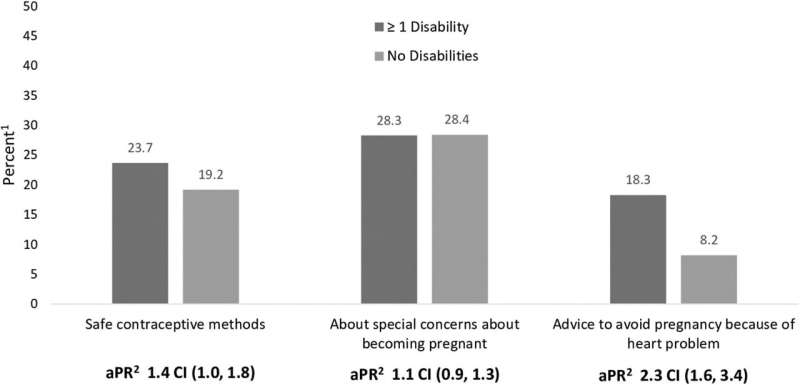This article has been reviewed according to Science X's editorial process and policies. Editors have highlighted the following attributes while ensuring the content's credibility:
fact-checked
peer-reviewed publication
trusted source
proofread
Reproductive health counseling among women with congenital heart defects

A new study shows that among women with congenital heart defects (CHD), reproductive counseling, concerns, and experiences differ by disability status. The study, which focused on contraceptive and pregnancy counseling, and pregnancy concerns and experiences, is published in the peer-reviewed Journal of Women's Health.
Sherry Farr, Ph.D., from the Centers for Disease Control and Prevention, and co-authors, based their findings on data from 778 women ages 19-38 years with CHD. The investigators reported that women with disabilities were 1.4 more likely than women without disabilities to have ever had a conversation with their provider about safe contraceptive methods, and 2.3 time more likely to have received advice to avoid pregnancy because of their CHD.
Approximately half a million adolescent and adult women are living with CHD in the U.S. Women with CHD are at increased risk of pregnancy complications and adverse outcomes, although most will have healthy pregnancies. Pregnancy is contraindicated only among a small subset. Among women with certain types of CHD, certain types of contraceptives are contraindicated.
In an accompanying Editorial titled "We Can Do Better—Reproductive Health Counseling for Women with Congenital Heart Disease and Disabilities," Natasha Wolfe, MD, from the University of Pittsburgh School of Medicine, states: "Looking closely at the numbers, 8% of women with CHD and no disabilities were told to avoid pregnancy, while 18% of women with CHD and at least 1 disability were told to avoid pregnancy. From a cardiac perspective, 18% of all women with CHD and disabilities seems like a high number to be told to avoid pregnancy altogether."
"This study shows us that we can need to do better to help women with CHD understand her unique pregnancy risk, know how to safely prevent unplanned pregnancy, and make an informed decision on the right time to pursue having a child of her own," says Dr. Wolfe.
More information: Sherry L. Farr et al, Reproductive Health Counseling and Concerns Among Women with Congenital Heart Defects With and Without Disabilities, Journal of Women's Health (2023). DOI: 10.1089/jwh.2022.0395
Natasha K. Wolfe, We Can Do Better: Reproductive Health Counseling for Women with Congenital Heart Disease and Disabilities, Journal of Women's Health (2023). DOI: 10.1089/jwh.2023.0042




















